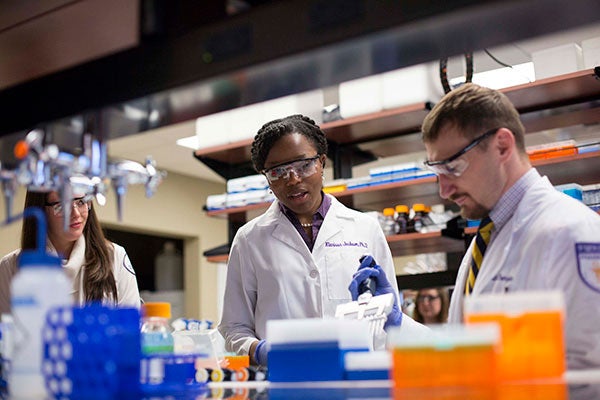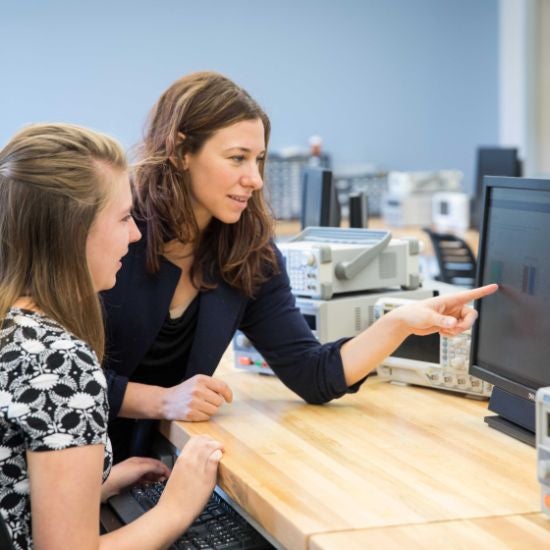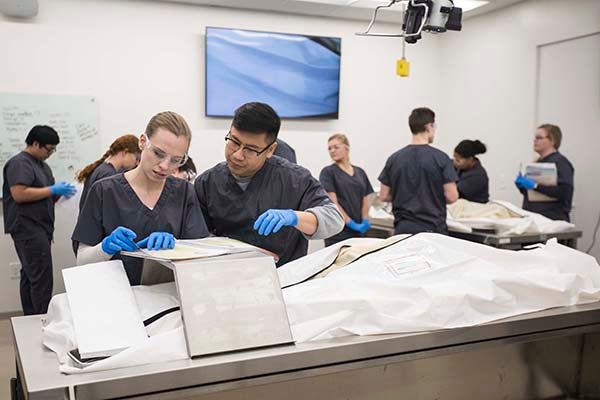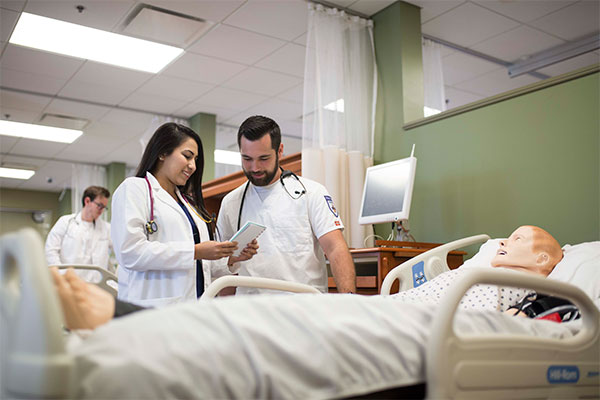Program Overview
Get your Pharm.D. in the health care capital of America.
As a pharmacist, details matter. So join the pharmacists who dive the deepest when it comes to caring for communities. Build the knowledge you need to be a pharmacist and gain the versatility you need to advance your career.
We've designed a curriculum that will guide you through your most challenging and rewarding experience yet: a pharmacy degree. Our high first-time NAPLEX pass rate and the # 1 Residency Match Rate in TN is evidence. Prepare yourself to join one of the fastest-growing industries in the nation. Let our expert faculty share their clinical knowledge embodied with Christian values. We promise: you’ll never be a number. You’ll be a member of a community that knows you by name.
And with our 100% job placement rate, we're confident that when you've earned your degree, you'll have a career to go with it. You also have the opportunity to maximize your time, money and effort when you choose one of our dual degree programs.
Program Outcomes
Gain a greater understanding of other health care providers with interprofessional learning. Choose from experiential practice locations of the highest quality and variety.
Our program includes:
- 14 Introductory Pharmacy Practice Experiences (IPPE rotations) in three 5-week blocks. This takes places during P1 through P3 years.
- 10-week paid summer research program including hands-on research, research seminars and presentations. Students evaluate scientific literature, develop and present a poster or seminar, and explore research career opportunities in the biomedical and pharmaceutical sciences.
- Exclusive pharmacy partnership with Vanderbilt Program in Interprofessional Learning (VPIL). This allows Lipscomb students to work in a clinical environment with a preceptor.
- Interprofessional learning with residency-trained faculty who are expert health professionals in their specialization. Pharm.D. students take well-rounded courses that are lead in each speciality but trained faculty in that area.
| Career ExplorationVideo CenterDiscover your passion and take courses to support your health care career goals. The Career Exploration Center provides a series of videos to help students expand their knowledge of where and how pharmcists use their medication training to align their skills with industry needs in PharmD careers that match their area of practice interest.. The center also answers any questions you may have, helping navigate your career journey with confidence. Resources are available to explore different pharmacy specialties and discover which path suits you best:
|
Dual Degrees
Dual degree options in Health Care Informatics or Master of Management in Health Care provide added value to your PharmD degree. You'll have the opportunity to participate in dual degree programs beginning the summer after your P1 year. You'll graduate on the same day with two degrees meaning you enter the workforce with added credentials that set you apart on day one of employment. At Lipscomb, you have the option of enrolling in one of two different dual degree programs:
Master of Science or Certificate in Health Care Informatics
Program Director for PharmD+MHCI: Dr. Beth Breeden
Master of Management in Health Care
Program Director for PharmD+MMHC: Dr. Ben Gross
Student Life
At Lipscomb University College of Pharmacy, our students have the opportunity to join numerous student organizations. Many of our students and organizations have won regional and national awards for their dedication to service. We are confident that you can find your community here at Lipscomb.
Organizations
AAPS: American Association of Pharmaceutical Scientists
Website: aaps.org
Faculty Advisor: Scott Akers
Awards Received: AAPS Chapter of the Year (2017)
AMCP: Academy of Managed Care Pharmacy
Website: amcp.org
Faculty Advisor: Kam Nola
Awards Received: Two-time National P&T Competition Finalist (2015, 2019)
Other Information: Open to all students. The organization is focused on pharmacy practice in managed care, pharmaceutical industry, outcomes/pharmacoeconomics, and specialty pharmacy related areas.
APhA-ASP: American Pharmacist Association-Academy of Student Pharmacists
Website: pharmacist.com/apha-asp
Faculty Advisors: Sarah Uroza and Justin Kirby
Awards Received:
- Division AAA 2nd Runner Up (2019-2020)
- Region 3 Operation Immunization Winner (2019-2020)
- National Operation Immunization Winner (2018-2019)
- Division AAA Runner Up (2018-2019)
- Region 3 Operation Immunization Award (2017-2018)
- Division AAA Winner (2017-2018)
- Division AAA 2nd Runner Up (2016-2017)
- National Operation Immunization 2nd Runner Up (2016-2017)
- Region 3 Operation Immunization Winner (2015-2016)
- Region 3 Operation Immunization Winner (2012-2013)
- Division AAA Runner Up (2011-2012)
- National Up and Coming Chapter of the Year (2010-2011)
Other Information: Open to all students. This is the largest student organization on campus with approximately 80% of students participating. This organization focuses on all areas of pharmacy and pharmacy advocacy. Our organization sponsors many patient care projects in which students go out into the community and provide immunizations, diabetes and blood pressure screenings, educational events for a variety of organizations and much much more. APhA-ASP has guest speakers at our meetings that work in a variety of different areas of pharmacy to help students learn more about unique career opportunities. There are multiple leadership opportunities available. Our chapter has had students serve as leaders on a local, regional and national level.
ASHP: American Society of Health-System Pharmacists
Website: ashp.org
Faculty Advisor: Jon Pouliot
Awards Received:
- National Clinical Skills Competition Top 10 (2021)
- National Clinical Skills Competition 2nd Place (2019)
Other Information: Open to all students and especially those interested in clinical pharmacy and residency (not just hospital pharmacy). The chapter sponsors our annual local Clinical Skills Competition with the winning team representing the college at the national competition. The chapter also sponsors multiple career development events such as CV review, mock interviews, and letter of intent review.
CPFI: Christian Pharmacist Fellowship International
Website: www.cpfi.org
Faculty Advisor: Rachel Crouch
Other Information: CPFI is a worldwide ministry of individuals working in all areas of pharmaceutical services and practice. Our mission is to serve Christ and the world through pharmacy.
Kappa Psi Pharmaceutical Fraternity, Inc.
Website: kappa-psi.com
Faculty Advisor: Lindsey Miller
Other Information: Kappa Psi Pharmaceutical Fraternity is the oldest and largest pharmacy fraternity with a mission to develop leaders with a passion for service to their community while creating lifelong professional connections. Once a brother of Kappa Psi, you become a brother for life.
NCPA: National Community Pharmacists Association
Website: ncpa.org
Faculty Advisor: Justin Kirby
Other Information: Open to all students, especially students interested in community pharmacy practice. This can include pharmacy ownership and enhanced services provided in the community setting. Events include chapter meetings with pharmacy owners and community pharmacy residents and an annual compounding competition
PDC: Phi Delta Chi Pharmacy Fraternity
Website: phideltachi.org
Faculty Advisor: Abbie Burka
Other information: Open to all students who wish to become brothers. Phi Delta Chi is a co-ed professional pharmacy fraternity with the object of advancing the science of pharmacy and its allied interests and to foster and promote a fraternal spirit among its members.
PLS: Phi Lambda Sigma Pharmacy Leadership Society
Website: philambdasigma.org
Faculty Advisor: Jessica Wallace
Other Information: National pharmacy leadership society to promote further development of leadership qualities among student pharmacists. P2-P4 students are eligible for nomination (demonstration of leadership in local/state/national pharmacy organizations; high degree of professionalism; minimum GPA 2.5) and PLS members vote on induction.
Rho Chi: The Academic Honor Society in Pharmacy
Website: rhochi.org
Faculty Advisor: Zac Cox
Other Information: Rho Chi is the national honor society for pharmacy students. Invitation is based upon earning a GPA in the top 20% of your class in the first half of pharmacy school. Invitations are sent in the fall semester of the P3 year.
SNPhA: Student National Pharmaceutical Association
Website: snpha.org
Co Faculty Advisors: Sarah Collier & Angie Maynard
Other information: Open to all students (including undergraduate/ pre-pharmacy students). SNPhA is a service organization concerned about the profession of pharmacy, healthcare issues, and the poor minority representation in these areas. The purpose of SNPhA is to improve the health, educational, and social environment of minority communities. This organization also supports the College’s Diversity, Equity, and Inclusion Committee.
SPGA: Student Pharmacist Government Association
SPiRiT: Student Pharmacist Recruiting Team
TSSP: Tennessee Society of Student Pharmacists- a Society of the Tennessee Pharmacists Association
Website: tnpharm.org/member-center/students-tssp/
Faculty Advisor: Chad Gentry
Other Information: If you join APhA-ASP you are automatically a member of TSSP/TPA. There are numerous statewide leadership opportunities available including members-at-large and delegates. TPA/TSSP hosts events that are just FUN, as well as programs to help you become a well-connected, well-informed pharmacy practitioner and advocate for your profession and your patients. There’s no better way for you to get to know students across the state who may be your future colleagues or lifelong friends.
Research
Faculty Research
The faculty of Lipscomb College of Pharmacy are widely recognized as experts in the fields of pharmacy and pharmaceutical sciences and are well-positioned to launch students into the pharmacy career of their choice. Our faculty are board certified in half a dozen specialties and practice at diverse sites throughout the Middle Tennessee area ranging from Vanderbilt University Medical Center, Monroe Carell Children’s Hospital at Vanderbilt, the Tennessee Valley VA, to private practice physician offices.
Faculty members have ongoing partnerships with investigators at institutions such as Vanderbilt University, Yale University and the Cleveland Clinic. Faculty research has been recognized through recent publications in journals such as the Journal of the American College of Cardiology, European Journal of Heart Failure, Critical Care Medicine, BMC Medicine, and Pharmacotherapy to name a few. Students have the opportunity to collaborate with faculty in research through both our summer research program as well as research electives in both pharmaceutical sciences and pharmacy practice in the third year. Please check out our faculty research guide here for more information on faculty research publications.
Summer Research Program
Students have ample opportunity to participate in research on campus alongside faculty members. Our Summer Research Program is a 10-week research experience supported by a competitive stipend offered by the Department of Pharmaceutical Sciences in collaboration with external research academic institutions and organizations.
The purpose of the program is to identify and introduce students to the excitement and importance of biomedical and pharmaceutical sciences research through a mix of educational and research activities.
Through extensive interactions with faculty and direct research experiences, our goal is to enhance students' understanding of the research process, the interdisciplinary nature of contemporary research and the opportunity for pursuing a career in academia, industry, and governmental agencies.
Participating Faculty & Organizations
- Lipscomb University Department of Pharmaceutical Sciences
- Vanderbilt University Department of Pharmacology
Eligibility & Application Requirements
Eligibility:
- GPA of at least 3.0 and in good academic standing
- Strong desire or potential to consider a research career
- Completed summer research program application
Application Requirements:
- Previous academic transcripts and records
- Results of standardized test scores (PCAT, GRE)
- Curriculum vitae or resume
- Two letters of recommendation
- One page essay stating how your participation in the program will contribute to overall career goals
For more information, contact scott.akers [at] lipscomb.edu (Dr. Scott Akers).
Spring Start Term
In addition to the typical Fall semester start, Lipscomb offers a Spring start (January) to provide a year-round option for those desiring to complete their degree in 3.5 years. The schedule provides one summer break following the P2 year instead of breaks after both P1 and P2 years, while still allowing for traditional content delivery and time for you to pursue a dual degree.
Admissions Requirements
Our Admissions Process
The College of Pharmacy utilizes a rolling admissions process and a holistic application review to identify appropriate candidates for interviews and potential enrollment. The application opens in mid-July each year for enrollment in August of the following year. Application reviews and interviews are ongoing throughout the fall and spring semesters or until the class is full. Applicants are encouraged to apply early! The PCAT is not required for admission.
Understanding Holistic Application Reviews
Many factors are considered in the holistic review of the application, interview and admissions process. They may include the following: academics, communication skills, letters of recommendation, problem solving skills, professionalism, work experience, degree earned, research, volunteerism, interview performance, attitude, timeliness and other factors that help differentiate those applicants that possess the highest likelihood of succeeding as part of the health care team.
Certain exceptions may be granted on an individual basis concerning admission requirements. No assurances or guarantees are given or implied based on the completion of the prerequisites or achieving a high level of academic performance.
Admissions Process
Admission Requirements
The pre-pharmacy education will require a minimum of 61 semester hours. Required pre-pharmacy courses should be completed before the term of desired enrollment.
Course Requirements:
- General Chemistry I and II with labs (8)
- Organic Chemistry I and II with labs (8)
- Microbiology with lab (4)
- Biology I and II with labs (8)
- College Algebra (3)
- Statistics (3)
- English Comp I and II (6)
- Speech/Communications (3)
- Electives - Humanities/Social Science (12)
- Additional Electives (6)
Achievement of a grade of "C" or higher for each required pre-pharmacy course is mandatory.
Substitutions may be offered for specific prerequisites outside of the math and science core curriculum to those having bachelor’s degrees through an appeal process.
You may submit an application while prerequisites are in progress and begin preparing for an on-site interview.
Note: We no longer have a minimum GPA requirement. However, a cumulative GPA of 2.5 or higher is preferred.
Application Process
Step One: Evaluate Yourself
Do you have all the courses?
- Compare with our pre-pharmacy prerequisite course listing
- The pre-pharmacy education will require a minimum of 61 semester hours. Required pre-pharmacy courses should be completed by the end of the spring semester prior to desired enrollment; however, coursework may be in progress or planned at the time of application without it negatively impacting the application. If an applicant has not completed all required pre-pharmacy coursework prior to submitting the application, a proposed plan for completion is required as part of the application process.
- CLEP/Advanced Placement Credit - Advanced Placement (AP) and CLEP credit (credit by examination) may be used to satisfy prerequisite coursework provided that the credit is accepted by the applicant's institution and is posted on the applicant's official academic transcript. Acceptance of credit is at the discretion of Lipscomb University College of Pharmacy based upon course equivalency standards.
Do your grades meet the requirement?
- Achievement of a grade of "C" or higher for each required pre-pharmacy course is mandatory.
What about the PCAT?
- The PCAT is NOT required for admission at Lipscomb. If you would like to include PCAT scores optionally, remember to include your CID Number on your PharmCAS Application so your scores may be matched to your application. After the test date you may request additional scores by visiting www.pcatweb.info.
Step Two: Submit Application Through PharmCAS
- Applications are available through PharmCAS. Applications must be completed and submitted electronically via their website. Please read the instructions very carefully to be sure the application is submitted properly. The deadline to begin an application for the Fall 2022 cohort is June 1, 2022. All materials must be submitted to PharmCAS by June 30, 2022.
- Click here to review information on our PharmCAS school page
Step Three: Prepare For An Admissions Interview
- An on-site interview is required for admission to Lipscomb University College of Pharmacy. Interviews are conducted by invitation only. Each complete application will be evaluated for competitiveness.
- Review the Technical Standards necessary for the completion of our program.
The Interview Experience
Interviews are conducted on an invitation only basis to students who have met all of Lipscomb University College of Pharmacy’s Admissions Criteria.
Interviews are typically offered in-person on Lipscomb’s campus, but limited virtual interview dates are available each year. We highly encourage students to attend the in-person interviews if possible, we would love to get to know you in person and show you around campus!
Students will be interviewed by two members of Lipscomb University College of Pharmacy’s Admissions Committee, which is composed of faculty, current pharmacy students, alumni, and members of the local Nashville pharmacy industry.
In addition to the interview, the day will be filled with opportunities for candidates to interact with faculty, staff, current pharmacy students, and each other. Lunch and an in-depth tour of the College of Pharmacy classroom facilities, our sterile compounding lab, the Pharmaceutical Sciences Research Center and the Health Sciences Patient Simulation Center.
Pre-Pharmacy and Pharmacy Early Assurance (PEA) program
Lipscomb pre-pharamcy program offers you multiple pathways to begin the Doctor of Pharmacy degree. The Pharmacy Early Assurance program even guarantees you admission to the Pharm.D. program based on your undergraduate application as long as you complete all your prerequisites and keep your grades up.
Transfer Students
Student pharmacists requesting a transfer to Lipscomb University College of Pharmacy from another Doctor of Pharmacy program must follow College guidelines.
- Each case will be individually assessed on its merit, and potential transfer students are to be informed that it is likely that an additional semester or more is needed to fulfill all required coursework.
- Student pharmacists must have an official transcript of their work from each school they have attended mailed to the College of Pharmacy's Director of Admissions and Recruitment office.
- Transfer candidates will be evaluated for transfer eligibility based on previous academic performance, personal behavior, on-campus interview and, when applicable, recommendations from faculty from the previous college/school of pharmacy.
- A grade of "C" or better must have been earned for each course for transfer.
- At least 50% of the credit hours required for the Doctor of Pharmacy degree must be earned in coursework at Lipscomb University College of Pharmacy; therefore, only transfer candidates in the earliest semesters of their respective pharmacy programs are eligible for transfer.
- Credit must have been received from an Accreditation Council for Pharmacy Education (ACPE) approved college of pharmacy before it will be awarded. Additionally, the prospective transfer student pharmacist must complete an onsite interview process arranged by the Director of Admissions and Recruitment.
- Transfer student pharmacists may also be asked to complete an assessment consistent with the level of coursework the student pharmacist should have completed prior to transfer. An assessment will be made on the score received to ascertain if the transfer should move forward and what academic level within the College.
- Additionally, all applicants to Lipscomb University College of Pharmacy must possess a cumulative grade point average (GPA) of 2.5 on a 4.0 scale on all previous college work. Grades from all undergraduate coursework attempted are included in the calculation of the overall undergraduate GPA, which is the primary GPA used in the admissions process. All previous academic work will be evaluated.
If you are interested in transferring and meet these criteria, request the application through the Student Affairs Office - pharmacy [at] lipscomb.edu (subject: Pharmacy%20School%20Transfer%20Application%20Request) (pharmacy[at]lipscomb[dot]edu).
International Students
An applicant who is not a United States citizen or permanent resident must follow the same admissions procedures as applicants who are U.S. citizens (see Admission Requirements) in addition to the following specific requirements. There will be no exceptions to this policy.
The following items are required prior to submitting an application.
- Prospective applicants must have been enrolled at an accredited U.S. college or university for a minimum of two years prior to the planned enrollment date.
- Prospective applicants must complete all designated pre-pharmacy prerequisite requirements. Prerequisite courses taken at an institution outside of the United States must be evaluated and approved prior to submitting an application. To have international courses evaluated, the prospective applicant must submit the following:
- All academic records from colleges and universities located outside the United States.
- Official transcript(s) must be in the original language and a translation in English.
- A course-by-course report from the transcript evaluation service World Education Services (WES) must accompany the transcript. Contact information for WES can be found at the website www.wes.org. Evaluations from other services are not accepted. The outside assessments by WES are subject to review and approval by the Office of Student Affairs. This includes, but is not limited to, decisions regarding acceptable credit, prerequisite fulfillment, GPA calculations, degree equivalencies, minimum passing grade levels, etc. The college is not obligated to accept the conclusion of any outside evaluation service.
- All academic records from U.S. colleges and universities
- Official transcripts should be submitted directly to Lipscomb University College of Pharmacy.
- All academic records from colleges and universities located outside the United States.
- English courses taken outside of the United States will not be accepted toward meeting the English requirements unless English is the official language of the university or college attended and all instruction (except for foreign language courses) is conducted in English.
- International students are required to be proficient in written and oral English before submitting an application. Applicants whose native language is not English must present the results of the Test of English as a Foreign Language (TOEFL), prior to applying for admission to the college. For more information, visit www.toefl.org. Minimum TOEFL scores are 213 for the computer exam and 550 for the paper exam. The equivalent TOEFL iBT score is 80. Lipscomb’s TOEFL code is 1161. In addition to an acceptable score on the TOEFL, other evidence of proficiency in English may include letters from employers or instructors, credit earned in English language courses and a personal interview.
After all of the required documents are received, the Office of Student Affairs will evaluate whether the coursework can be applied to the prerequisite requirements for admission. If all prerequisite requirements will be met by the spring semester prior to the anticipated enrollment and all other documentation has been submitted and approved, then a formal application may then be submitted to the College.
The following items are required at the time of the application submission:
- Applicants must provide copies of current status with the U.S. Immigration and Naturalization Service (INS) at the time of application., i.e. VISA, I-94 and I-20 documents.
- Applicants must provide financial statements requested from their U.S. banking institution that shows adequate funds needed for all expenses for at least one year related to enrollment in the Lipscomb University College of Pharmacy.
An applicant who is not a United States citizen or permanent resident must follow the same admissions procedures as applicants who are U.S. citizens in addition to other specific requirements. Click the button below to visit our Graduate Admissions site for more information.
FAQ's
Do you accept online courses?
- Yes, we accept coursework from any accredited institution.
When do my courses need to be completed?
- All prerequisite courses must be completed prior to the first day of classes at Lipscomb University College of Pharmacy. Summer courses are acceptable, but be mindful of the course end date and the start date of our semester.
Do I need to have all the prerequisites completed before submitting my application?
- No! If you are only lacking a few more prerequisites, submit your application. This will be more beneficial for you as an applicant so you may gain a seat in the cohort before it fills up. If our admissions committee invites you for an interview and offers you a letter of acceptance into the program, that acceptance will be conditional pending the final grades of your remaining prerequisites. You will just need to designate any incomplete courses as “Planned” or “In Progress” so our admissions team can see that you have intentions of completing all necessary courses.
Who can my letters of recommendation come from?
- One letter of recommendation is required from your pre-health committee. If your school does not have a committee, two academic letters from course instructors (ideally those who teach math or science) will be accepted as a substitution. All applicants will also need to submit one letter from a supervisor in a work or volunteer setting and one letter that serves as a character reference. So, who can you ask to write a letter of recommendation?
- Clergy? Yes
- Coworker? Yes
- Employer? Yes
- Faculty Advisor? Yes
- Family Member? No
- Friend? Conditionally Accepted
- Health Care Professional? Yes
- Pharmacist? Yes
- Politician: Conditionally Accepted
- Pre-Health Advisor? Yes
- Professor? Yes
- Supervisor? Yes
- Teaching Assistant? Yes
What is a Personal Statement?
- Your personal statement should reflect who you are and why you are striving to become a pharmacist. Some applicants may choose to share a personal story describing an event that changed their perspective on health care, or their plans to help people once they earn their PharmD.
I’ve been out of school for a while, will that impact the strength of my application?
- Please note that our admissions requirements state that all math & sciences prerequisite courses must be completed within 10 years of submitting an application.At Lipscomb, we have a wide age range of students in our program. Some are in their early 20s and just completed the 61 prerequisite hours to gain acceptance. Others have been in a different career for several years and discovered their aspirations to become a pharmacist later on in life. Each type of student is equally valued in our program, as they all have different life experiences that they can share with their peers to help everyone become better health care providers.
What is the GPA requirement?
- We no longer have a minimum GPA requirement, but a 2.5 or higher overall GPA is preferred. Highly competitive applicants typically have a 3.3 GPA or higher, and will be eligible for more scholarships and earlier admission.
How do I confirm that I plan to attend Lipscomb University College of Pharmacy?
- After the successful completion of an interview and you have been notified of your acceptance, you will receive instructions on how to reserve your seat in the cohort. This will include a “Confirmation of Attendance” form and steps to pay your $500 deposit to reserve your seat. You will be given several weeks to inform us of your decision.
Technical Standards
The primary mission of the Lipscomb University College of Pharmacy is to provide an educational environment characterized by academic excellence and Christian faith, where student pharmacists are prepared to optimize patient medication outcomes in an ethical and compassionate practice.
The professional program leading to the Doctor of Pharmacy (Pharm.D.) degree and eligibility for licensure requires a certain level of cognitive, behavioral and technical skill and ability inherent in a professional education. These principles and standards hold for admission, progression and completion of the program.
The primary role of the pharmacist is to provide safe and effective health care to the patients served. Patient safety must be considered in the selection and education of student pharmacists. As well, the College of Pharmacy has a responsibility to maintain as safe an environment as possible for its student pharmacists and the practice settings in which they receive education. Student pharmacists must reasonably contribute to a safe environment through their personal, physical and mental health or social behavior.
All student pharmacists are expected to successfully fulfill the same core educational requirements. Reasonable education-related accommodations will be provided, where possible and within Lipscomb University guidelines. Student pharmacists need to possess the skills and abilities with or without accommodations that will allow successful fulfillment of the requirements necessary to complete the program. Student pharmacists who graduate from the program are eligible to become pharmacists without restriction on their practice; therefore, the curriculum requires student pharmacists to successfully complete all core components of the program and does not allow student pharmacists to take part in a limited set of required activities.
Lipscomb University College of Pharmacy will consider for admission any candidate who demonstrates the ability to perform or learn to perform the skills listed in this document. Candidates are not required to disclose the nature of their disabilities, if any, to the Admissions Committee. Any candidate who has questions about the ability to satisfy these technical standards is strongly encouraged to discuss the issue with the College of Pharmacy's Director of Admissions and Student Affairs prior to the application or interview process in order to determine whether or not reasonable accommodations can be made.
Certain chronic or recurrent illnesses and problems that interfere with patient care, safety or required class attendance may be incompatible with pharmacy training or practice. Other conditions that may lead to a high likelihood of student illness should be carefully considered. Candidates must, at all times, demonstrate the emotional stability to be able to exercise sound judgment and carry out prompt completion of all of the responsibilities attendant to the care of their patients in a sensitive and effective manner. Deficiencies in knowledge base, judgment, integrity, character or professional attitude or demeanor, which may jeopardize patient care, may be grounds for course/rotation failure and possible dismissal. Therefore, reassessment of individual's ability to meet the technical standards will be an ongoing process through the duration of the program.
Lipscomb University College of Pharmacy adheres to technical standards by which it assesses all students, with or without accommodation. A candidate must meet all criteria noted regarding the five following areas: 1) observation; 2) sensory and motor coordination; 3) communication; 4) cognitive ability and 5) behavioral and social attributes. Failure to meet all components in each of the five areas may result in a student's dismissal. Each case will be reviewed on an individual basis by the appropriate College personnel.
The following technical standards describe the essential functions students must possess and demonstrate in order to fulfill the requirements of a general pharmacy education, and thus, are prerequisites for entrance, continuation and graduation.
Observation: The ability to critically observe demonstrations, experiments and patients using visual, auditory and somatic senses
- Observe lectures, demonstrations, experiments and practice-based activities
- Observe physiologic and pharmacological demonstrations, evaluations of microbiological cultures, and microscopic studies of organisms and tissues and in normal pathological states
- Observe a patient accurately at a distance and close at hand
- Independently read information on a computer screen at an appropriate rate to complete duties and assignments as required
- Remain fully alert and attentive at all times in clinical settings
- Visually evaluate patient signs and symptoms for the purposes of monitoring drug therapy
Sensory and Motor Coordination: Use of the body associated with mental activity
- Visually evaluate microscopic slides, pharmaceutical preparations and instrumentation data
- Prepare and administer patient immunizations
- Perform CPR, use a stethoscope and take a pulse
- Demonstrate safe and aseptic handling of sterile preparations
- Prepare drug products (compound drug products, prepare IVs, and make capsules)
- Safely and effectively operate equipment (e.g., microscopes, computer keyboard, glucose monitors, peak flow meters)
Communication: Imparting or interchange of thoughts, opinions or information by speech, writing or signs
- Communicate effectively and proficiently in the English language
- Document activities as required by the rotation site or College of Pharmacy
- Speak, listen and read in order to elicit information
- Effectively communicate with instructors, peers and patients
- Communicate professionally with other health care providers and patients
- Teach patients how to use health care related devices (inhalers, glucometers, etc.)
- Provide patients with clear, concise, accurate and audience-appropriate information
- Organize ideas and develop thoughts into coherent, appropriately written, and referenced essays and research papers
- Interpret non-verbal communication (body language) from peers, patients, instructors and members of a health care team
- Utilize appropriate resources for communication with non-English speakers
Cognitive Ability: Mental processes of perception, memory, judgment and reasoning
- Accurately fill prescriptions
- Solve problems involving measurement, calculations, reasoning, analysis, synthesis and evaluation
- Perform rapid algebraic calculations for a variety of patient care situations
- Gather and evaluate information from multiple sources to develop patient treatment and monitoring plans in a timely manner
- Demonstrate evidence-based decision-making
- Synthesize knowledge and integrate relevant information
Behavioral and Social Attributes -- Characteristics of experience, behavior and interaction with people in didactic and experienced settings
- Demonstrate maturity, emotional stability and capability to adapt to changing environments
- Demonstrate persistence and flexibility in all situations
- Engage in help-seeking behavior when appropriate
- Utilize constructive coping strategies to manage stress
- Seek personal, professional or academic support to address personal limitations
- Display positive self-esteem and confidence when working with others (e.g. patients and other clinicians)
- Perform competently under physical, mental and emotional stress
- Accept appropriate suggestions and criticism and respond, if necessary
- Exhibit a respect for diversity and justice
- Act in a manner that respects all individuals
- Individualize care with considerations for cultural norms for the patient
- Provide care without judgment
- Seek justice in the distribution of health care resources
- Demonstrate ethical behaviors as described in the Code of Ethics for Pharmacists, Oath of a Pharmacist, and Pledge of Professionalism
- Maintain professional competence through lifelong learning
- Act with honesty and integrity in professional relationships
- Respect the dignity, confidentiality and autonomy of each patient
- Serve individual, community and societal needs
The College of Pharmacy is committed to student diversity and individual rights, with a strong commitment to full compliance with state and federal laws and regulations including Section 504 of the Rehabilitation Act of 1973 and the Americans with Disabilities Act of 1990. Candidates with disabilities are reviewed individually, with complete and careful consideration of all the skills, attitudes and attributes to determine whether there are any reasonable accommodations or available options that would permit the candidate to satisfy the standards. An accommodation is not reasonable if it poses a direct threat to the health or safety of self and/or others, if making it requires a fundamental altercation to the nature of the program, if it lowers academic standards, or poses an undue administrative or financial burden. Except in rare circumstance, the use by the candidate of a third party (e.g., an intermediary) to perform any of the functions described in the Technical Standards set forth above would constitute an unacceptable substantial modification.
Student pharmacists who desire disability services or accommodations should make their request known through the College of Pharmacy's Office of Student Affairs. An appointment will be scheduled to discuss the needed services. The student pharmacist will be required to present appropriate documentation for the disability and information regarding any past accommodations provided that have been successful. Questions regarding the technical standards, the process for requesting accommodations or eligibility requirements may be directed to the College of Pharmacy's Director of Admissions and Student Affairs at any point prior to admission, during the admission process or after enrollment in the program. The appropriate college administrators will evaluate each request to determine eligibility for services.
Courses
Doctor of Pharmacy (Pharmacy, Pharm.D.)
Electives
During the 3rd year of pharmacy school, students have the opportunity to choose two elective courses each semester to fill their class schedule. Lipscomb University College of Pharmacy offers a generalist PharmD degree with content delivered from highly trained faculty members who represent a range of specialties. This allows our graduates to explore a broad range of career opportunities with focused training in emerging pharmacy practice areas as well as research in practice and lab settings. Electives, along with Advanced Pharmacy Practice Experiences, allow students to tailor their education to enhance their skills and differentiate themselves in areas that they are interested in exploring in more depth. Elective courses include the following:
- PHAD 3302: Project Management
- PHAD 3542: Change Management
- PHPR 3702: Clinical Problems in Endocrinology
- PHPR 3712: Drug-Induced Disease
- PHPR 3722: Advanced Perspectives in Psychiatry
- PHPR 3742: Pharmacy Management of Vulnerable and Underserved Populations
- PHPR 3752: Women's Health
- PHPR 3782: Drugs of Abuse and Addiction
- PHPR 3792: Toxicology
- PHPR 3812: Molecule to Market
- PHPR 3822: Formulary Decision Making and Assessment
- PHPR 3832: Ambulatory Care
- PHPR 3842: Consumer Health Informatics
- PHPR 3852: Critical Care
- PHPR 3922: Research in Pharmacy Practice
- PHSC 3922: Introduction to Pharmaceutical Sciences Research
IPPE & APPE
Being in the Health Care Capital of America works to our students’ advantage when it comes to rotations. Lipscomb University College of Pharmacy students will have the opportunity to complete their introductory and advanced pharmacy practice experiences at a wide variety of community, institutional, and specialty rotations across Middle Tennessee.
Applied Christian Values
Previous topics and guest speakers have included:
-
Maximizing Dignity at the End of Life: Insights from the ICU - Wes Ely, MD, Vanderbilt University Medical Center
- A Vision for Finding Common Ground in a Polarized World - Ming Wang, MD, PhD
- Developing Effective Coping Skills - Douglas Ribeiro, PhD, LPC
- Worldview and Values Panel - Ben Frush, MD and Jason Booton, MD
- Vaccine Hesitancy Panel - Quincy Byrdsong, EdD and Kevin Eidson, Pharm.D.
- Religious and Cultural Perspectives in Healthcare:
- Father Daniel Ibrahim - St. Mina Coptic Orthodox Church
- Minister Michael Bridgman - Nashville Hospital Liaison Committee for Jehovah’s Witnesses
- Representatives from the Islamic Center of Nashville
- Jim Henderson, MD - Siloam Health Center
- End of Life and Suicide Panel Discussion - Lindsey Miller, Pharm.D. and Susan Mercer. PhD
- Compassionate Care Panel Discussion - Lipscomb Pharmacy Faculty
Vanderbilt Program for Interprofessional Learning
What is VPIL?
VPIL puts a twist on the normal clinical experience by bringing together students from five different disciplines to form interprofessional teams. Each team consists of a future doctor, nurse practitioner, pharmacist, and counselor or social worker.
Over the course of this two-year elective, the team spends one afternoon each week in the clinic together seeing patients, creating personalized care plans, and working under the direction of a mentoring medical professional called a “preceptor.”
VPIL students don’t just learn from their professors and preceptors, they learn from each other. Each member of the team brings unique insight and experience to the whole group. How would a nurse practitioner or pharmacist approach this situation? What details is a doctor paying attention to here? What unique insight might a counselor or social worker offer about this patient?
Why VPIL?
- You’ll gain experience interacting with patients face-to-face
- You’ll learn advanced teamwork and communication skills as you collaborate with other medical professionals
- You’ll get hands-on experience in your field, starting from your first year of pharmacy school.
How do I become a part of VPIL?
- All pharmacy students are encouraged to consider VPIL
- To apply, contact Allison Provine, PharmD, BCPS, BCPP at aprovine [at] lipscomb.edu
How will my schedule look different from that of my classmates?
- Your VPIL hours will partially fulfill your IPPE credit
- You will complete an additional twenty hours of work per semester, compared to the rest of your cohort
Who else is involved in VPIL?
- Lipscomb University College of Pharmacy is the exclusive pharmacy partner for VPIL
- Counseling students from Vanderbilt University
- Medical students from Vanderbilt University and Meharry Medical College
- Nursing students from Vanderbilt University
- Social Work students from The University of Tennessee
Tuition & Aid
New Scholarships Approved!
First-Year Tuition and Fees 2024-25
| Tuition | Fees* | Total | |
|---|---|---|---|
| Fall Semester | $19,969 | $2,256 | $21,857 |
| Spring Semester | $19,969 | $2,256 | $21,857 |
| Total Cost** | $39,938 | $4,512 | $43,314 |
* Fees include: Insurance, Labs, Technology, Student Activity, etc.
** All amounts shown are estimates and subject to change.
Students who complete FAFSA (Free Application for Federal Student Aid) may be eligible for Federal Direct Loans and/or Graduate PLUS loans.
Scholarships
Newly accepted student pharmacists are considered for scholarships on the basis of the holistic PharmCAS application review and are awarded on a competitive basis. Students who meet and/or exceed the preferences of the admissions criteria will be considered for scholarship awards first. No additional application is required.
Scholarships for returning students in the P2, P3 and P4 years are awarded through a separate application provided during the spring semester each year and made through a committee review process. Students desiring scholarship consideration are encouraged to apply early in the application cycle.
State Funds: Tennessee Educational Lottery Scholarship (HOPE)
-
Either $3,500 or $4,000 per year (can be up to $5,500)
-
Available to Tennessee residents only
-
GPA requirements: 3.0 after 72, 96 and 120 hours
-
HOPE recipients must maintain continuous enrollment
-
Eligible to receive for five years from the original date of receiving the award as a freshman, so if you were awarded the HOPE as an undergraduate, you may no longer be eligible.
Applying for Aid
Federal Direct Loan
-
Maximum of $33,000 in Unsubsidized Direct Loans per academic year as a Pharm.D. student
-
Having a Federal Unsubsidized Direct Loan means that interest accrues while you are in school
-
6.08% interest rate
-
Payments begin six months after graduation or leaving school
-
Eligibility is determined by FAFSA
-
1.062% origination fee at time of disbursement
Grad Plus Loan
-
7.08% interest rate
-
4.248% fee at time of disbursement
-
Can be deferred while in school
-
FAFSA is required
-
Non-need based loan, based on credit. Can use a co-signer.
-
Must use all of Direct before Grad Plus is applied to account
For financial aid purposes, you are considered a professional student once you are accepted into the College of Pharmacy. This means that you will file as an independent student on your FAFSA, even if you are claimed as a dependent on your parent’s income taxes. You will not use any of your parents’ information when you file your FAFSA.
Complete the FAFSA. We recommend that the FAFSA be filed electronically by April 1. Be sure to have your tax information from the most recent tax year and your driver’s license. If you do not have your tax return completed by then, go ahead and file the FAFSA. You can always amend your FAFSA once your return is complete.
If you have filed a FAFSA before, you will need your FSA ID. If you have not filed a FAFSA before, request an FSA ID.
Please be sure to answer the following questions on the FAFSA as shown.
How to answer FAFSA Question 28: When you begin the school year, what will be your grade level?
- 1st year graduate/professional (for P1)
- Continuing graduate/professional or beyond (for P2, P3 & P4)
How to answer FAFSA question 29: When you begin the school year, what degree or certificate will you be working on?
- Graduate/ professional
How to answer FAFSA question 48: At the beginning of the school year, will you be working on a master’s or doctorate program? Yes
Yellow Ribbon Program
Lipscomb University College of Pharmacy is proud to announce that effective January 1, 2021 we are a participant in the Yellow Ribbon Program. If you have questions regarding your eligibility for Yellow Ribbon or want to learn more about services offered to our military & veteran students, contact the Veterans Services Office.
R. Samuel Lynn, Director of Veterans Services
sam.lynn [at] lipscomb.edu
Jimmie L. Handley, Veterans Programs Coordinator
jimmie.handley [at] lipscomb.edu
Billie Scroggins, Veterans Certifying Official
billie.scroggins [at] lipscomb.edu (billie[dot]scroggins[at]lipscomb[dot]edu)
Contact Information
College of Pharm, Student Services
Laura Ward
Director of Admissions & Student Affairs
(615) 966-7173
laura.ward@lipscomb.edu
Graduate and Adult Admissions, Admin
Rebekah Osteen
Associate Director of Graduate Enrollment
(615) 966-7181
rebekah.osteen@lipscomb.edu
Job placement rate
Residency-Trained Faculty
Our curriculum covers all areas of the pharmacy field, however, our courses are taught by specialists in their area of expertise. Learn from industry leaders and become a well-rounded pharmacist.
Certifications
Get hands-on patient experience during the first 4 weeks of enrollment through the immunization certification. BLS, Medication Therapy Management, Diabetes Education, SHIP training and more are among the other certifications available through our program.
Dual Degree Option
Earn a second degree while pursuing a PharmD at Lipscomb. Choose from a Master's in Health Care Informatics or a Master's in Management of Health Care to enhance your degree and make you a well-rounded pharmacist.
Research Opportunities
We know that you want to be an innovator in the field. That’s why we offer unique research opportunities in our state-of-the-art facilities with our world-class faculty so that you can hone your expertise.
Nashville, TN
A big city. An even bigger opportunity. We consider Nashville, Tennessee, an extension of our classroom, and as a leading city in many industries, that means you’ll gain experience and insight you won’t find anywhere else.
Networking
Both our deeply connected faculty and our experiential learning opportunities offer myriad ways for you to form relationships with leaders in the industry. These connections will serve and support you throughout your career.
NAPLEX pass rate for Class of 2019
Our Faculty
Meet our faculty.
-
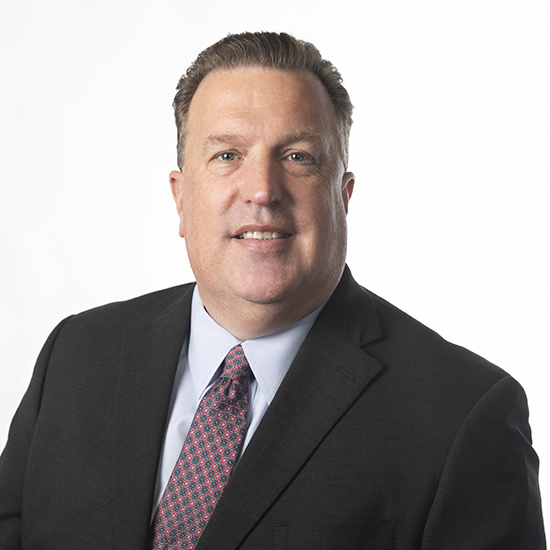
Tom Campbell
Dean, College of Pharmacy
Tom Campbell is the Dean and Associate Professor of Pharmacy Practice at Lipscomb University College of Pharmacy in Nashville. Dr. Campbell received his Pharm.D. degree from the University of Tennessee...
Meet Tom Campbell -
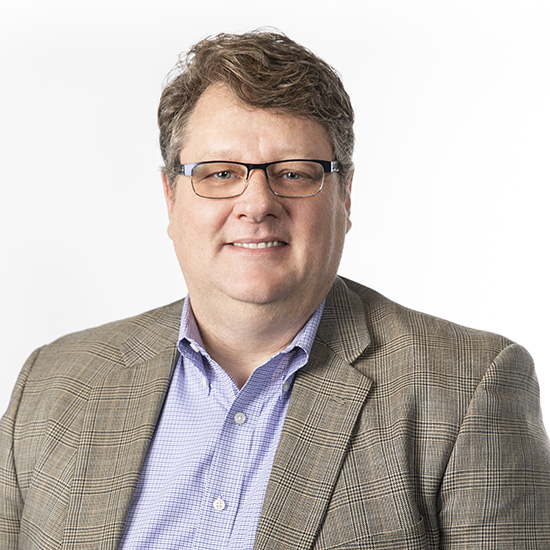
Scott Akers
Executive Director , PSR & Associate Dean of Research
Dr. Akers research expertise as a clinical pharmaceutical scientist over the past 25 years bridges the pre-clinical and clinical phases of small molecule drug development in the areas of pre-formulation...
Meet Scott Akers -
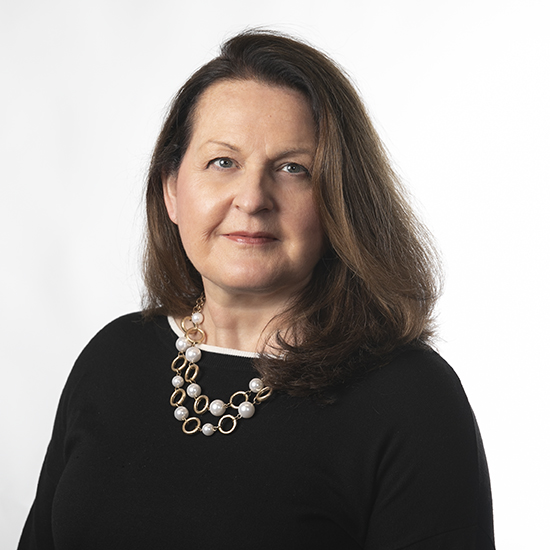
Beth Breeden
Professor
Dr. Beth Breeden is an Associate Professor and Chair of Graduate Studies in Health Care Informatics at the Lipscomb University College of Health Sciences. She has more than 25 years...
Meet Beth Breeden -
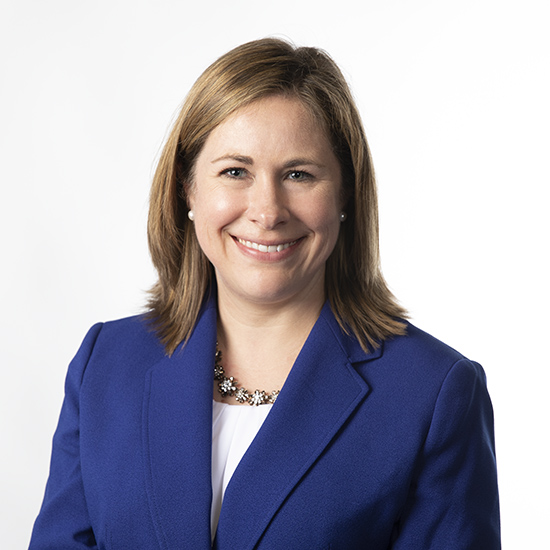
Abbie Burka
Associate Dean of Assessment
Abbie Burka is an Associate Professor of Pharmacy Practice and Director of Interprofessional Education, where she coordinates opportunities for students in the health science programs to collaborate and learn together....
Meet Abbie Burka -
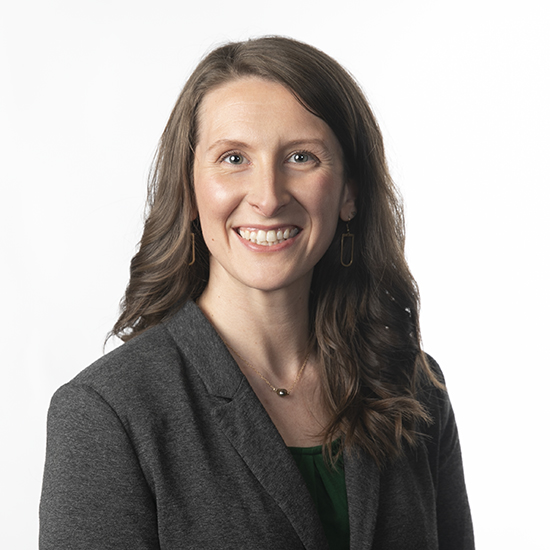
Sarah Collier
Assistant Professor
Dr. Sarah P. Collier joined the Lipscomb University College of Pharmacy faculty as an Assistant Professor of Pharmaceutical Sciences in the Fall of 2018. Dr. Collier earned her Bachelor of...
Meet Sarah Collier -
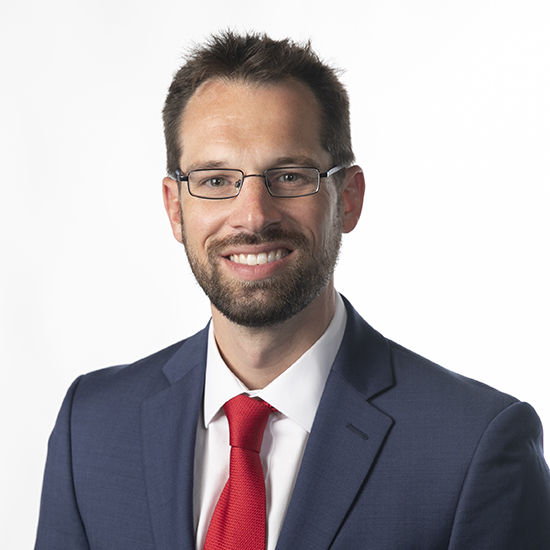
Zac Cox
Professor
Zac Cox attended the University of Tennessee at Chattanooga where he studied pre-pharmacy. He received his Doctor of Pharmacy degree from the University of Tennessee Health Science Center College of...
Meet Zac Cox -
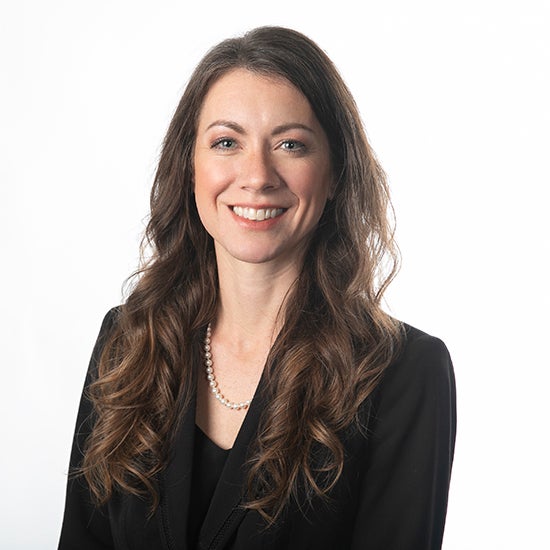
Rachel Crouch
Associate Professor
Crouch received her Bachelor of Arts degree in Applied Biochemistry and Spanish from Lipscomb University in 2008 and her Doctor of Pharmacy degree from Lipscomb University College of Pharmacy in...
Meet Rachel Crouch -
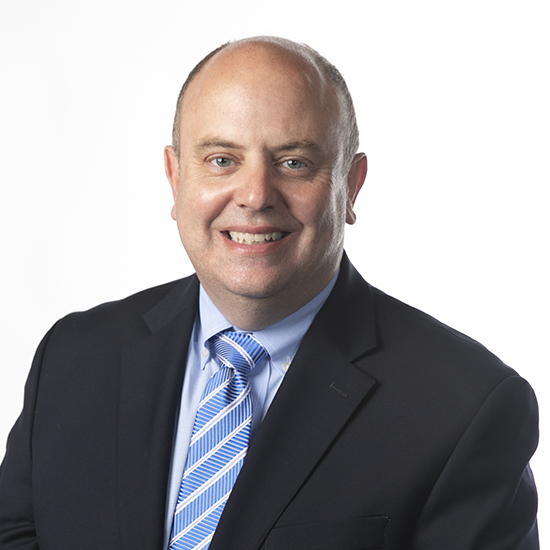
Kevin Eidson
Director of Health & Wellness
Eidson joined Lipscomb University College of Pharmacy as an assistant professor of pharmacy practice in August of 2010. He teaches Pharmacy Law and Ethics and assists with coordinating continuing educational...
Meet Kevin Eidson -
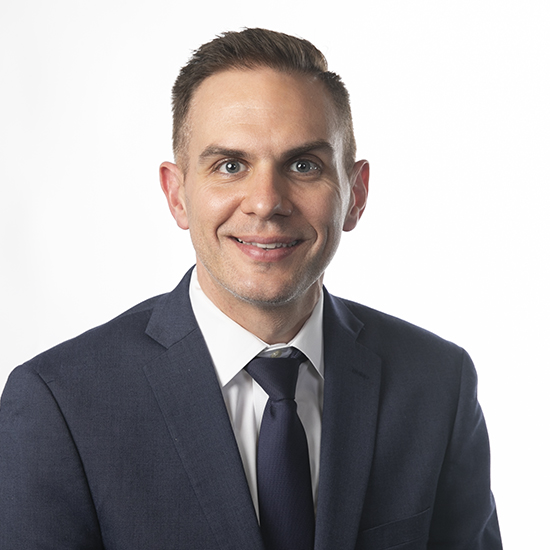
Chad Gentry
Associate Dean Experiential Education Pharmacy
Chad grew up in East Tennessee and attended the University of Tennessee Knoxville and received his Doctor of Pharmacy degree from the University of Tennessee Health Sciences Center. He then...
Meet Chad Gentry -
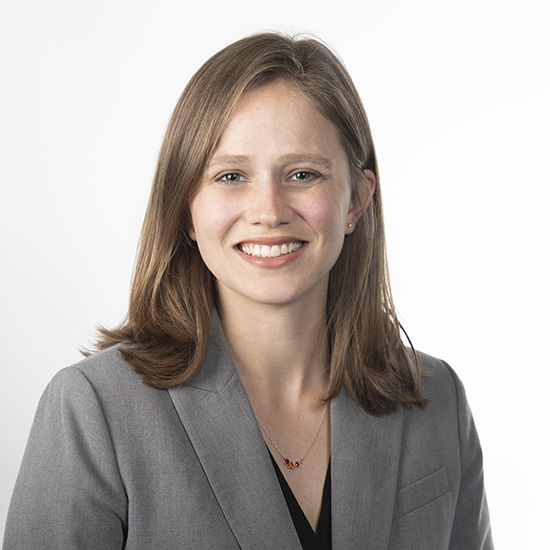
Sarah Graff
Assistant Professor
Dr. Sarah Graff graduated with a BS in Biology from the University of Kentucky before attending Vanderbilt University where she obtained her PhD in Molecular Physiology and Biophysics. Her PhD...
Meet Sarah Graff -
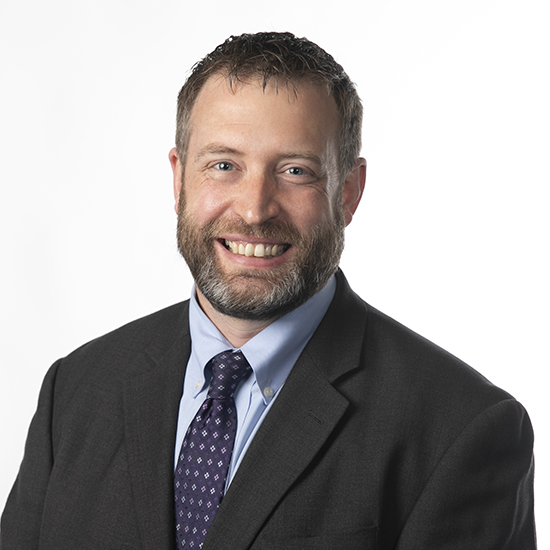
Ben Gross
Department Chair, College of Pharmacy
Gross received his Bachelor of Science degree in biology at Murray State University and his Doctor of Pharmacy degree at the University of Tennessee. Gross completed a specialty residency in...
Meet Ben Gross -
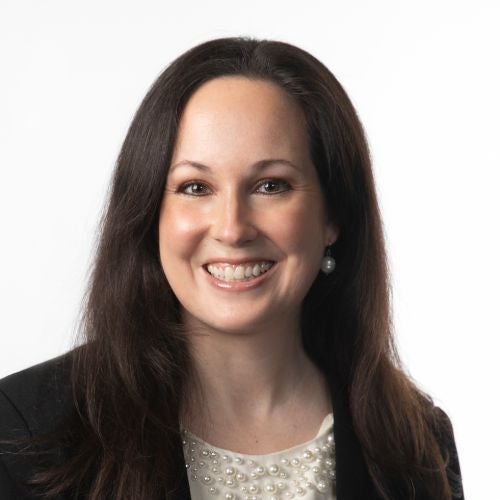
Susan Hamblin
Assistant Professor
Dr. Hamblin has been practicing in clinical pharmacy with a focus in critical care/trauma for over 10 years. She graduated from the University of Mississippi School of Pharmacy in 2007....
Meet Susan Hamblin -

Randy Jerkins
Assistant Professor
Jerkins graduated from Lipscomb University with a degree in Biology. He received his Bachelor's degree in Pharmacy in 1985 and a Doctor of Pharmacy degree in 1986 from the...
Meet Randy Jerkins -
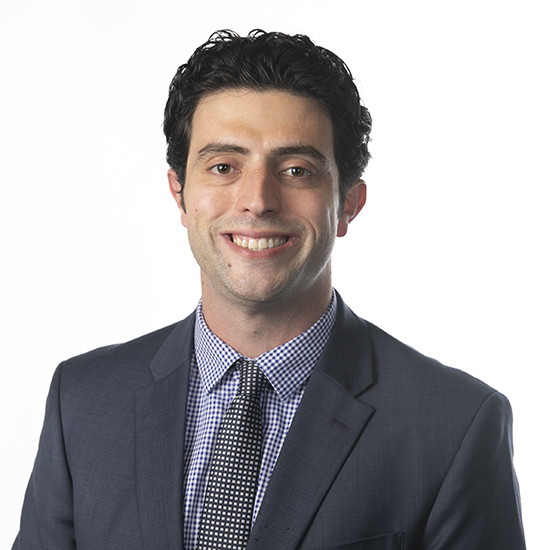
Justin Kirby
Associate Professor
Dr. Justin Kirby is a native of middle Tennessee having grown up in Lafayette before moving to Cookeville for college and, ultimately, to Nashville for pharmacy school. He remained in...
Meet Justin Kirby -
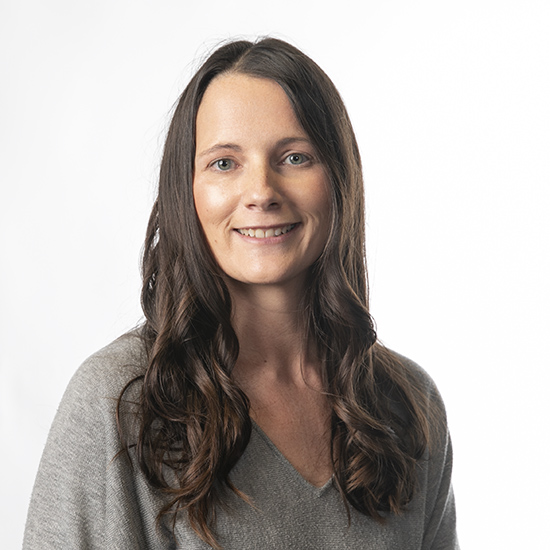
Lindsey Miller
Associate Professor
Miller received her Bachelor of Science in Business degree from Eastern Illinois University followed by her Doctor of Pharmacy degree from West Virginia University School of Pharmacy. She then went...
Meet Lindsey Miller -
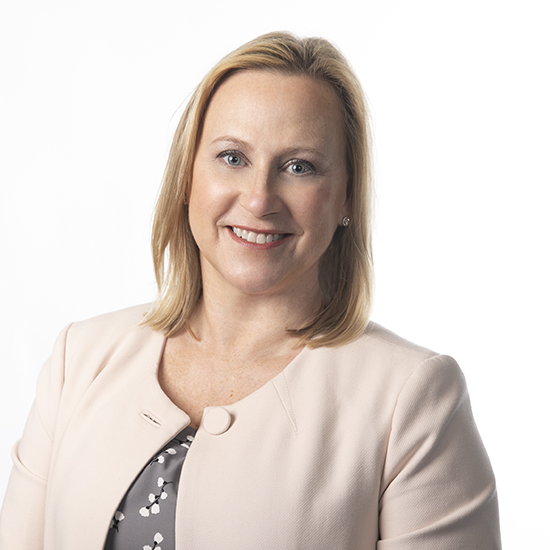
Kam Nola
Associate Dean of Academic Affairs
Kam Nola received her Bachelors of Science Degree in Psychology from Middle Tennessee State University, Doctor of Pharmacy Degree from the University of Tennessee College of Pharmacy, and Masters of...
Meet Kam Nola -
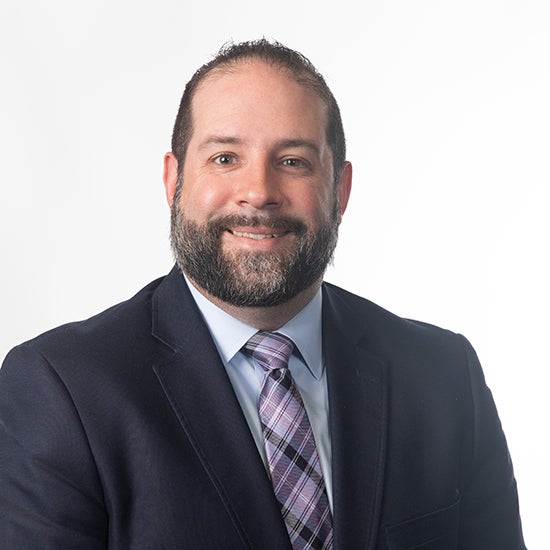
Jon Pouliot
Associate Professor
Jon was born and raised in Rhode Island. After completing his undergraduate studies at Providence College, he moved to North Carolina for his graduate work, receiving a Doctor of Pharmacy...
Meet Jon Pouliot -
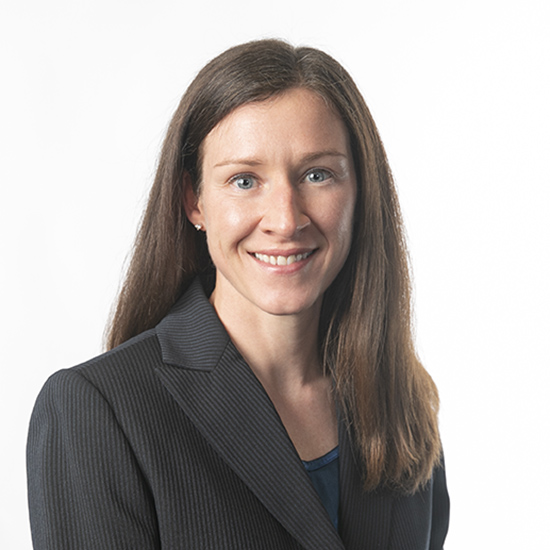
Allison Johnston
Associate Professor
Allison Provine Johnston received her Bachelor of Science in Education and Doctor of Pharmacy degrees from Samford University. She then went on to complete a pharmacy practice residency at Emory...
Meet Allison Johnston -
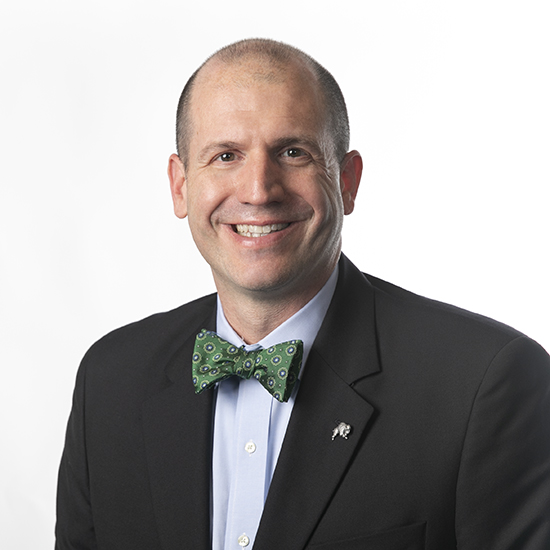
Jimmy Torr
Associate Professor
Torr completed his Bachelor of Science degree in Biology and Accounting from Lipscomb University in 2001 and his Doctor of Pharmacy degree from the University of Tennessee College of Pharmacy...
Meet Jimmy Torr -
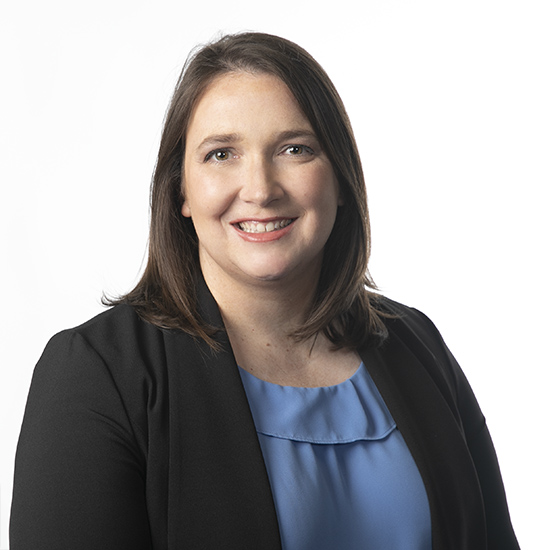
Sarah Uroza
Associate Professor
Sarah is a native of Arkansas. She completed her pre-pharmacy work at the University of Central Arkansas and completed her Doctorate of Pharmacy at the University of Arkansas for Medical...
Meet Sarah Uroza -
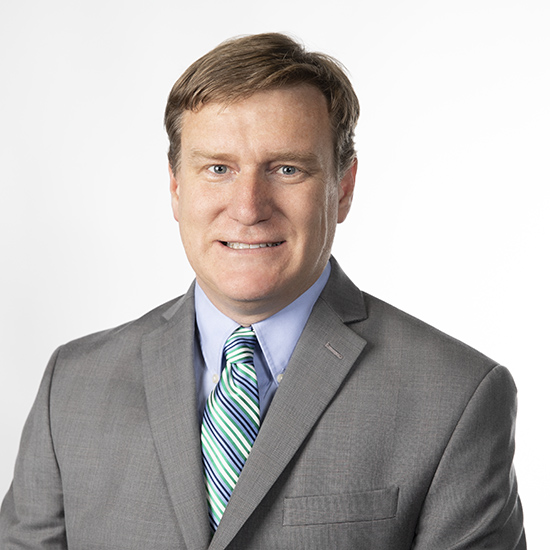
Matt Vergne
Associate Professor
Matt Vergne joined the Lipscomb College of Pharmacy in 2013. Dr. Vergne earned a Bachelor of Science degree in Chemistry from Harding University, and he earned a Ph.D. in Chemistry...
Meet Matt Vergne -
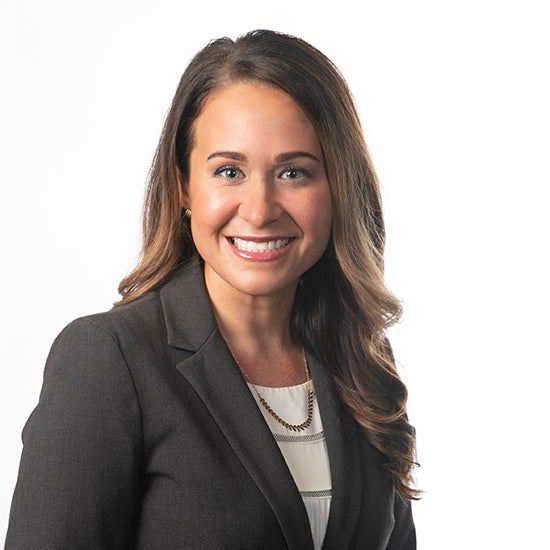
Jessica Wallace
Associate Professor
Jessica Wallace received her Bachelor of Science degree from Middle Tennessee State University followed by her Doctor of Pharmacy degree from University of Tennessee College of Pharmacy. She completed a...
Meet Jessica Wallace -
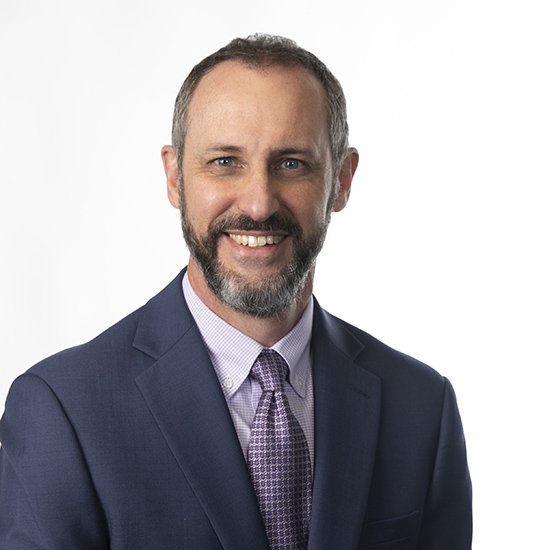
Greg Young
Assistant Professor
Prior to joining the faculty at Lipscomb University, Young served for six years as a Nuclear Pharmacist and Pharmacy Manager for Cardinal Health Nuclear Pharmacy Services. He previously served as...
Meet Greg Young -

Student-to-faculty ratio
Career Paths
Community Practice Pharmacist
Utilizes medication and clinical knowledge to ensure patients receive the most appropriate mediation therapy in a convenient and cost-effective way.
Hospital Pharmacist
Works directly with doctors, nurses and patients to make sure each patient receives the correct medication and dosage. They evaluate patient lab reports to offer consult for alternative medication options and work directly with patients to ensure they understand their medications while in the hospital and as they are discharged.
Other Pharmacist Careers
Research and Development, Academia, Long-Term Care, Home Health Care, Patient Advocacy, Managed Care
